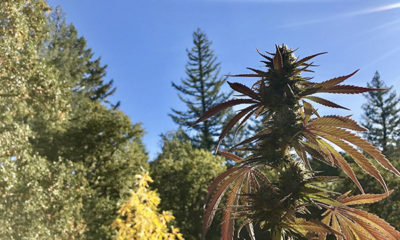
Joint Opinions
The Next Stage of American Cannabis Policy
This past Election Day there were nine ballot initiatives relating to cannabis — eight passed. A remarkable feat and, in any other year, banner headline news. But in an election that was dominated by personalities rather than issues, the marijuana initiatives often got lost in the cacophony. Mr. Trump, with his creative campaigning, seemed to steal the oxygen from everyone and everything. As we limped into Election Day on Nov. 8, the populace was so exhausted it’s a wonder anyone had the strength to pull the voting levers.
The 2016 election, that took nearly two years from start to finish, will be analyzed for decades but the passing of eight marijuana ballot initiatives in one election cycle is likely to fade into our culture as just another brick in the wall. Cannabis for medical purposes has become absolutely mainstream, even though there are still plenty of patients who want access to cannabis, but are unable to obtain it. State restrictions sometimes seem as onerous as the federal.
Similarly the legalization of adult marijuana use — now approved in eight states and the District of Columbia — is well on its way to becoming commonplace and is beginning to exert enormous economic clout. California recently became the world’s 5th largest economy in the world (overtaking the United Kingdom!) and legalizing marijuana may well move the state up yet another notch. It is these kind of facts that lead long time activists, such as Tom Angell, Chairman of the Marijuana Majority, to say, “Reversing course and going against the tide of history would present huge political problems that the new administration does not need.”
We can hope it’s true. President-elect Trump has indicated strong support for medical cannabis saying in 2015 that he supports “medical marijuana, 100 percent.” That promise was spoken at the 2015 Conservative Political Action Conference where he also said this on general legalization.
“They’ve got a lot of problems going on right now in Colorado, some big problems,” he said.
But later, when asked specifically about states’ rights and marijuana, the then-candidate provided a very conservative response, “If they vote for it, they vote for it.”
Of course one problem with Trump policies is that they have a certain elasticity depending on the day and the crowd being addressed. But the 2016 campaign did seem to firm up his thoughts on the marijuana issue and there was some emerging consistency, although not the kind we might like to see. Like other politicians before him, Trump seemed to see bogeymen where none exist, focusing in on Colorado with comments such as these, “I’m watching Colorado very carefully, see what’s happening out there. I’m getting some very negative reports, I’m getting some OK reports, but I’m getting some very negative reports coming out of Colorado.”
Even more worrisome is the president-elect’s grasp (or lack thereof) of the research saying at one point marijuana has “tremendously damaging effects to the mind, to the brain, to everything.”
This uninformed perspective feeds nicely into that of two of Trump’s most loyal lieutenants, Governor Chris Christie of NJ and former NYC Mayor Rudy Giuliani, both of whom are rumored to be on Trump’s short-list for U.S. Attorney General. Christie’s state of NJ has had a medical marijuana law since 2010, but Christie has been less than supportive, quite the contrary. On occasions he has called the medical marijuana movement “a front for legalization.”
But Giuliani is even more nerve-wracking from a reformer point of view. The former mayor seems to have taken his thinking on drug reform from the Richard Nixon school of how-to-use-drug-laws-against-my-enemies-school. His record in New York is abysmal. Governing during a time when drug use in NYC was at an all-time low, Giuliani nevertheless managed to promote a cardboard image of being tough on drugs and holds no affection for medical cannabis.
“I believe the effort to try and make marijuana available for medical uses is really a way to legalize it. There’s no reason for it,” he told CBS News in 2007.
So whither now, fellow drug reformers? Well, it appears that we will all need to be a bit more aware and a lot more nimble. Politicians like Trump, Christie and Giuliani are perfect fodder for the anti-marijuana forces. They will create problems where none exist and will have the mighty pulpit of the federal government from which to issue their lies. And there will be lies. Be ready for it, we’ve seen it before and we must be ready for it.
TELL US, where do you think the future of cannabis policy is headed?























